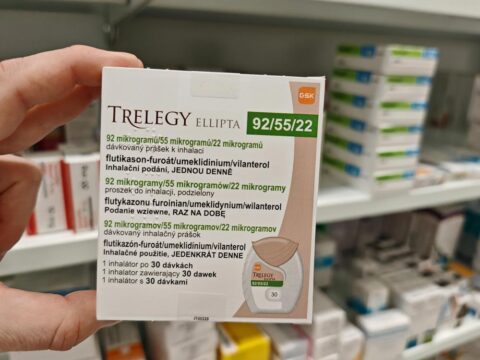Advertisment
BTS 2013 Report – Risk of cancer transmission from organ donors

by Maria Dalby reporting on the presentation by Rajeev Desai, National Health Service Blood and Transplant, Bristol. The risk of cancer transmission via transplanted organs is very low in the UK. Contrary to what some tabloid editors would have their readers believe at times, the risk of receiving an organ where cancer is present at the time of donation is less than 1 in 2,000 cases.
Rajeev Desai and colleagues at NHS Blood and Transplant in Bristol have conducted a review of transplantations carried out during a 10-year period and the results suggest a very low, albeit unavoidable, risk of cancer transmission.
There are three principal routes by which organ transplant recipients may develop cancer: firstly, cancer may develop de novo after the transplantation, such as squamous cell skin cancer triggered by immunosuppressive therapy; alternatively, cancer may develop in the donated organ after the transplantation (donor-derived cancer), for example renal cancer developing in a donated kidney; or cancer may be present in the organ at the time of donation (donor-transmitted cancer, DTC) and the transplant team may or may not be aware of this. The latter often receives considerable media attention which may potentially impact negatively on future donations. With increasing use of older donors, the rate of donor-origin cancer is expected to increase – over half of organ donors in the UK are now aged over 50 years.
To determine the incidence of DTC in the UK, Dr Desai and colleagues searched the UK Transplant Registry and databases at transplant centres to identify patients undergoing organ transplants and developing donor-origin cancer between 1 January 2001 and 31 December 2010. During this period, a total of 30,765 transplantations were performed using 14,986 donors. Of these, 15 recipients of organs from 13 donors developed DTC, equivalent to an incidence rate of 0.05%. Of these, six were renal cell cancer, five were lung cancer, two were lymphomas, and there was one case each of neuroendocrine cancer and colon cancer. Dr Desai stressed that in none of these cases had the donor been known to have cancer that the time of accepting the organ for transplantation.
The only donor factor that was found to correlate significantly with DTC was donor age – only in one of the DTC cases was the donor younger than 45 years (p=0.004 vs. donor age ≥45 years). Donor gender and type had no effect on cancer transmission, nor was any correlation seen with donor smoking status and obesity rates.
There was no significant difference between different organs with respect to DTC rates. There was, however, a trend towards a more favourable outcome amongst patients who developed DTC within the first six months post-transplant – a total of 11 patients developed DTC in this time period and could all be treated with explant/excision; by contrast, out of four patients who developed DTC beyond six months post-transplant, three died from their cancer. The 5-year survival rate was 83% amongst kidney recipients who developed DTC, compared with 93% amongst those without DTC (p=0.077). Dr Desai and colleagues concluded that DTC is rare, but when it occurs it frequently results in graft loss and death. The fact that the cancer was unknown to the transplant team at the time of donation means that the risk of cancer transmission cannot be completely eliminated.





